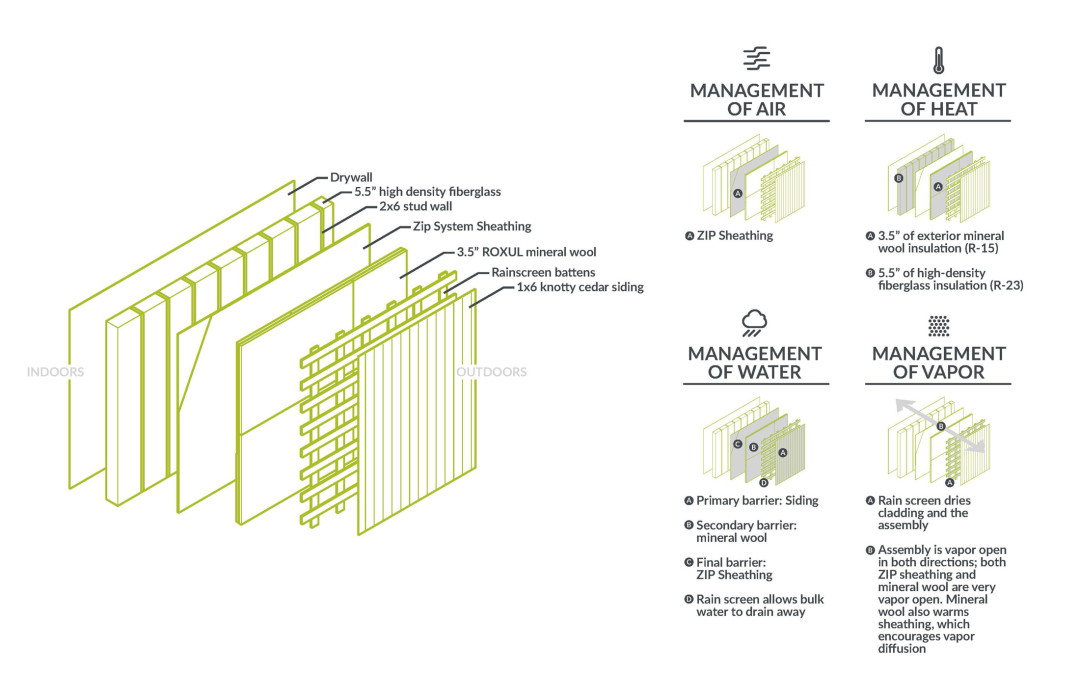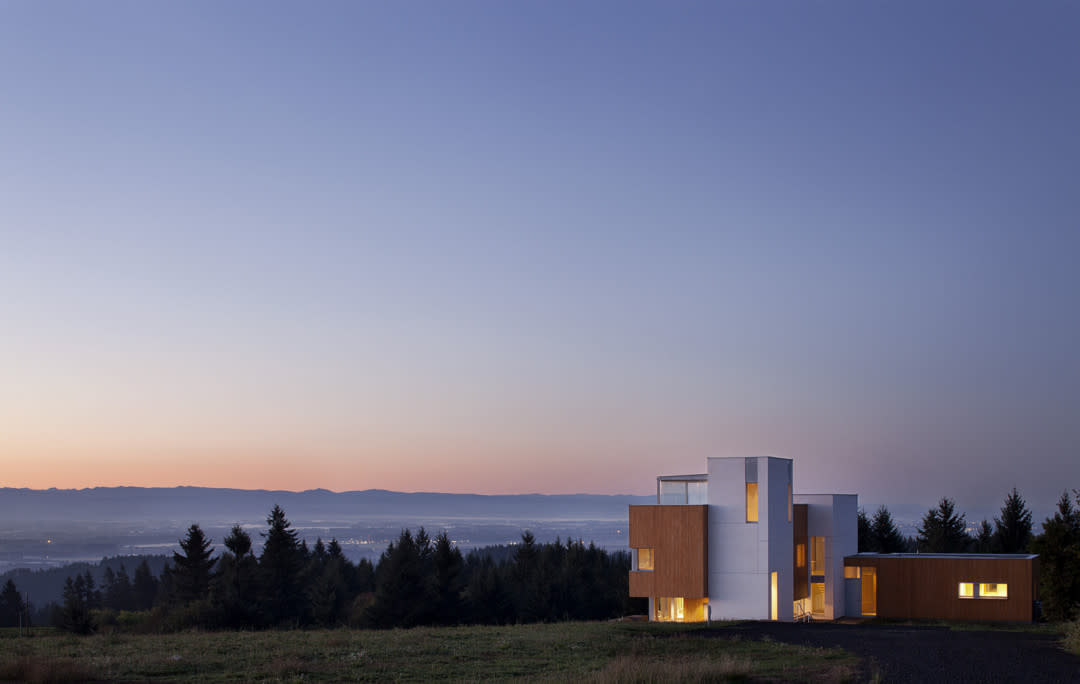Can Architecture Save the Planet—Or, At Least, Your Power Bill?

Image: Courtesy AIA
Can ambitious, arguably wonky design and building techniques help arrest global warming? With The Evolution of Enclosure, a current exhibit at the American Institute of Architects, the renowned local green-building firm Hammer and Hand argues that craftsmanship, architecture, and climate change are integrally linked.
According to Architecture 2030, a non-profit that focuses on the projected consequences of climate change, “the urban built environment is responsible for most of the world’s fossil fuel consumption and greenhouse gas emissions.” But building practices can change, and the Hammer & Hand/AIA show aims to demonstrate how.
Featuring work from Holst Architecture, Scott Edwards Architecture, SHED Architecture & Design, and The Miller Hull Partnership, the exhibit includes four full-scale cross-sections to dive deep into the arcana of high-performance building , including scientific illustrations, and photos of past Passive House and net-zero energy projects in Portland and Seattle. The goal is to showcase the high performance work already being done and work with the architectural community to help continue the evolution of building practice.
The exhibit runs through September 10 at AIA Portland (403 NW 11th Ave).

Holst Architecture's hyper-efficient Karuna House in the Willamette Valley
Image: Courtesy Holst Architecture
